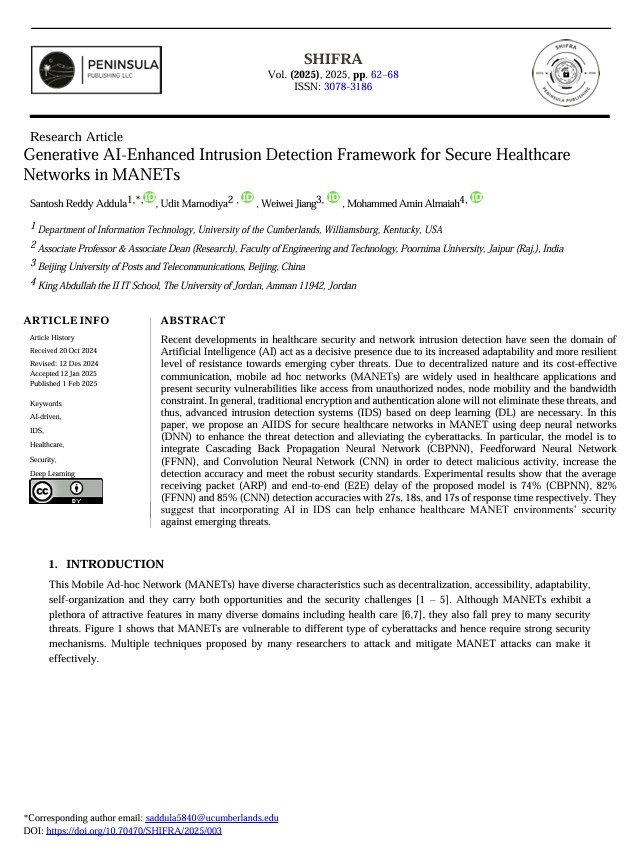Generative AI-Enhanced Intrusion Detection Framework for Secure Healthcare Networks in MANETs
Main Article Content
Abstract
Recent developments in healthcare security and network intrusion detection have seen the domain of Artificial Intelligence (AI) act as a decisive presence due to its increased adaptability and more resilient level of resistance towards emerging cyber threats. Due to decentralized nature and its cost-effective communication, mobile ad hoc networks (MANETs) are widely used in healthcare applications and present security vulnerabilities like access from unauthorized nodes, node mobility and the bandwidth constraint. In general, traditional encryption and authentication alone will not eliminate these threats, and thus, advanced intrusion detection systems (IDS) based on deep learning (DL) are necessary. In this paper, we propose an AIIDS for secure healthcare networks in MANET using deep neural networks (DNN) to enhance the threat detection and alleviating the cyberattacks. In particular, the model is to integrate Cascading Back Propagation Neural Network (CBPNN), Feedforward Neural Network (FFNN), and Convolution Neural Network (CNN) in order to detect malicious activity, increase the detection accuracy and meet the robust security standards. Experimental results show that the average receiving packet (ARP) and end-to-end (E2E) delay of the proposed model is 74% (CBPNN), 82% (FFNN) and 85% (CNN) detection accuracies with 27s, 18s, and 17s of response time respectively. They suggest that incorporating AI in IDS can help enhance healthcare MANET environments’ security against emerging threats.
Article Details

This work is licensed under a Creative Commons Attribution 4.0 International License.
